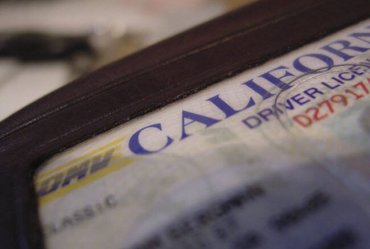
Dealing with an aging parent who is having an increasing number of bumper scrapers or fender benders often leads to a heart-wrenching decision – to take their car keys away.
Sadly, many of us will have to do it. If your elderly parent or other close relative is showing signs of diminishing driving skills, it may be time to have that “talk” with them before their car insurance company does or they have a more serious accident.
Because we all take pride in our driving and couldn’t wait as teenagers to gain that freedom and independence associated with getting a driver’s license and buying our first car, having to tell someone they’re no longer safe to operate a motor vehicle can be extremely difficult. But, someone has to do it – and, that person is probably you.
Putting off the dreaded discussion
It’s a subject people often put off because they dread discussing it with their elderly loved ones. After all, how do you approach someone who has been driving for 50, 60, or even 70 years and announce it’s time for them to turn over their car keys and independence?
Unfortunately, there’s no easy way. Unless they’re already aware that something has got to give – and, that something may be their driving privileges – you stand hurting their feelings and facing resistance, not to mention a fair amount of conflicting emotions on both sides.
According to an article in New York Times Health, titled “The Car Key Conversation”, 29 percent of adult children who took part in a research study reported that discussing their parent’s funeral plans was easier than talking to them about relinquishing their driving privileges. Meanwhile, another 18 percent of those surveyed said that moving into assisted living and selling the family home was an easier subject to discuss with their parents than the driving issue.

Discussing the subject ahead of time
Some experts suggest discussing the subject with loved ones way ahead of the situation turning dangerous. By being compassionate and calm you can inform them you realize that driving is a big part of their freedom and mobility. The goal is to soften the blow when it becomes necessary for them to surrender their car keys should they lose the ability to drive safely without endangering themselves and other motorists.
While it may be a difficult subject with some loved ones, broaching the topic from time to time before the inevitable happens may actually make it easier for them to understand you’re doing it for their own good.

Importance of reassuring your loved ones
Furthermore, reassure them by stressing that you will be there to help them so they can continue to do the things that are important to them or that you’ll find other ways for them to get around. If they know in advance they won’t be stranded and will have other means of transportation available, they may be more agreeable to the sudden change in mobility.
The website Caring.com advises that if your loved one denies they’re having a problem with their driving, and their auto insurance isn’t cancelled because of too many accidents – preventing them from getting behind the wheel – more drastic measures may be in order. Of those, the website suggests taking them to your local Department of Motor Vehicles (DMV) for a driving and vision test. Should they fail to pass either test, their driver’s license will be revoked immediately, making your task easier.
Facing the last resort
In the event they pass both the vision and driving portion, return to the DMV every six months to have them tested. Hopefully, it doesn’t come down to the last resort – taking and hiding their car keys.




